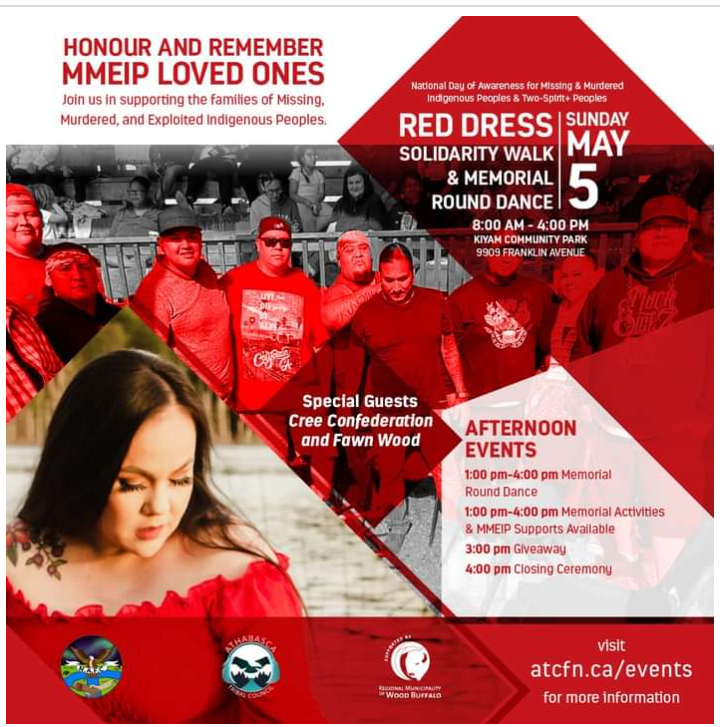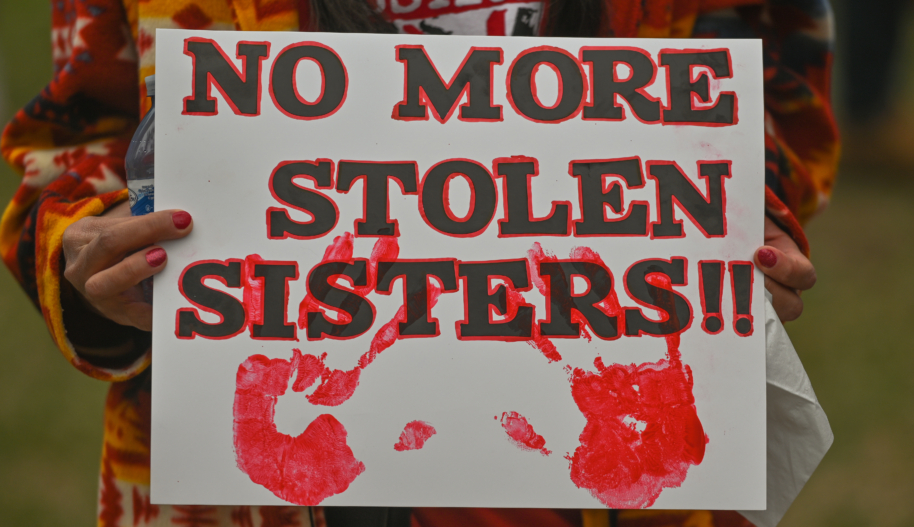May 5 is Red Dress Day, a day to remember and honour missing and murdered Indigenous women, girls, and 2SLGBTQQIA+ peoples (MMIWG2S+). Red Dress Day serves as a painful reminder of the ongoing genocidal crisis of missing and murdered Indigenous women, girls and 2SLGBTQQIA+ people and invites solidarity and action.
Origins of Red Dress Day
The roots of Red Dress Day can be traced back to the powerful art project of Canadian Métis artist Jaime Black. In 2010, Black initiated the “REDress Project” as a visual reminder of the staggering number of missing and murdered Indigenous women across Canada. Black hung red dresses in public spaces, from trees to lamp posts, creating a stark contrast against the landscape, evoking both sorrow and resilience.
What started as an art installation soon morphed into a movement. Indigenous Peoples, allies and advocates across Canada and beyond embraced the symbolic red dress as a rallying cry for awareness and action. Red Dress Day emerged as an annual event, bringing people together to honor the lives lost and demand justice for the victims and their families.
NO MORE STOLEN SISTERS
Currently, Indigenous women make up 16 per cent of all femicide victims and 11 per cent of all missing women. Indigenous women, girls and 2SLGBTQQIA+ peoples are also 6 times more likely to be murdered than their non-Indigenous counterparts. These high rates of violence have drawn widespread expressions of concern from national and international human rights authorities, which have repeatedly called for Canada to address the problem.
However, nearly four years after the release of the Final Report of the National Inquiry into Missing and Murdered Indigenous Women and Girls, and two years following the release of the National Action Plan, only two of the 231 Calls for Justice have been implemented, while an implementation timeline has yet to be released.
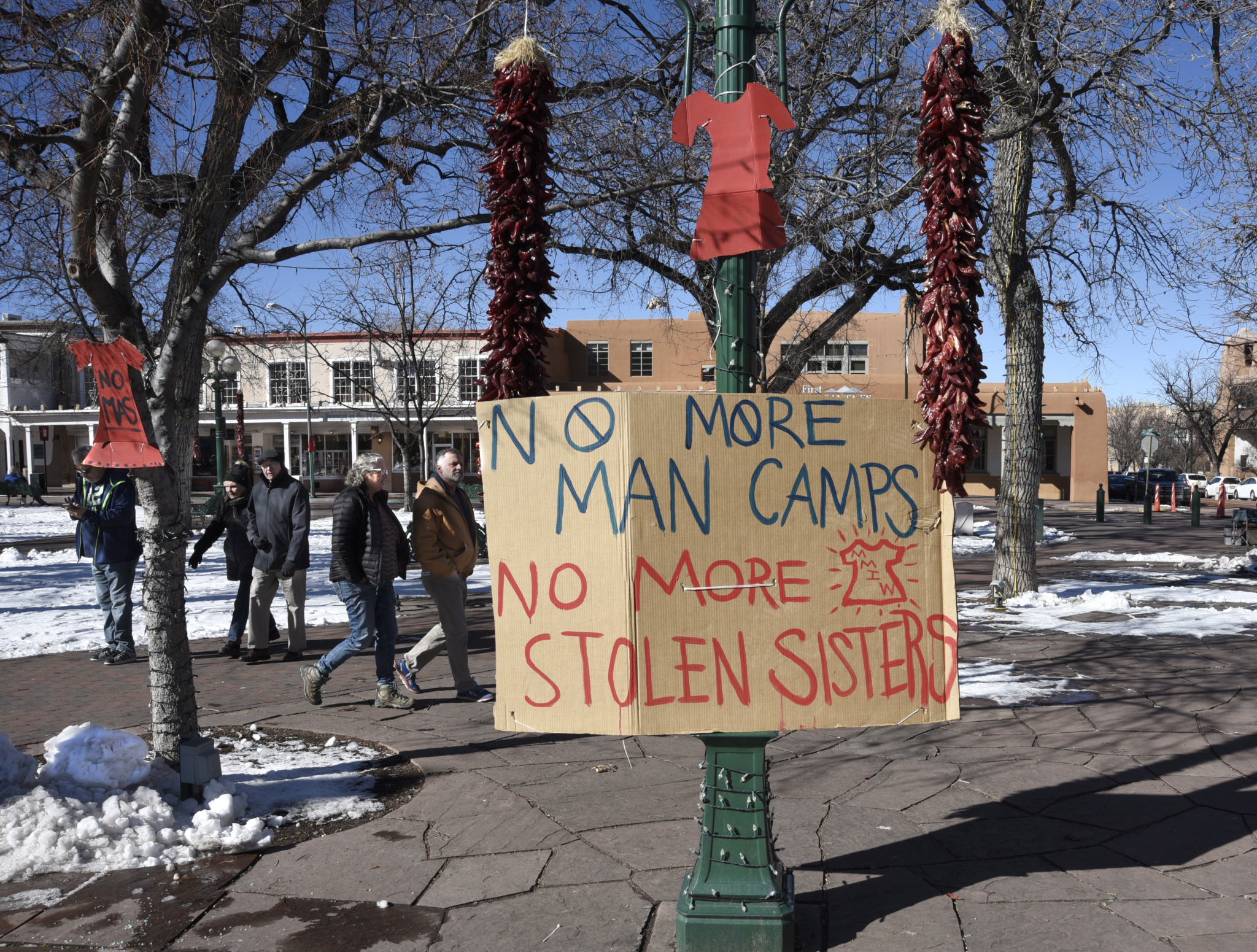
Threats faced by Indigenous Women and 2SLGBTQQIA+ defenders
In 2023, the Special Rapporteur on Indigenous Peoples and the Special Rapporteur on Contemporary Forms of Slavery, including its Causes and Consequences expressed deep concern over the high rates of sexual assault, exploitation and sex trafficking experienced by Indigenous women, girls and 2SLGBTQQIA+ people and defenders in proximity to temporary resource extraction labour camps associated with the Coastal GasLink and Trans Mountain pipeline construction sites, colloquially known as ‘man camps’.
TAKE ACTION
Sign our e-action demanding Canada to protect the rights of Indigenous women and 2SLGBTQQIA+ land and water defenders.
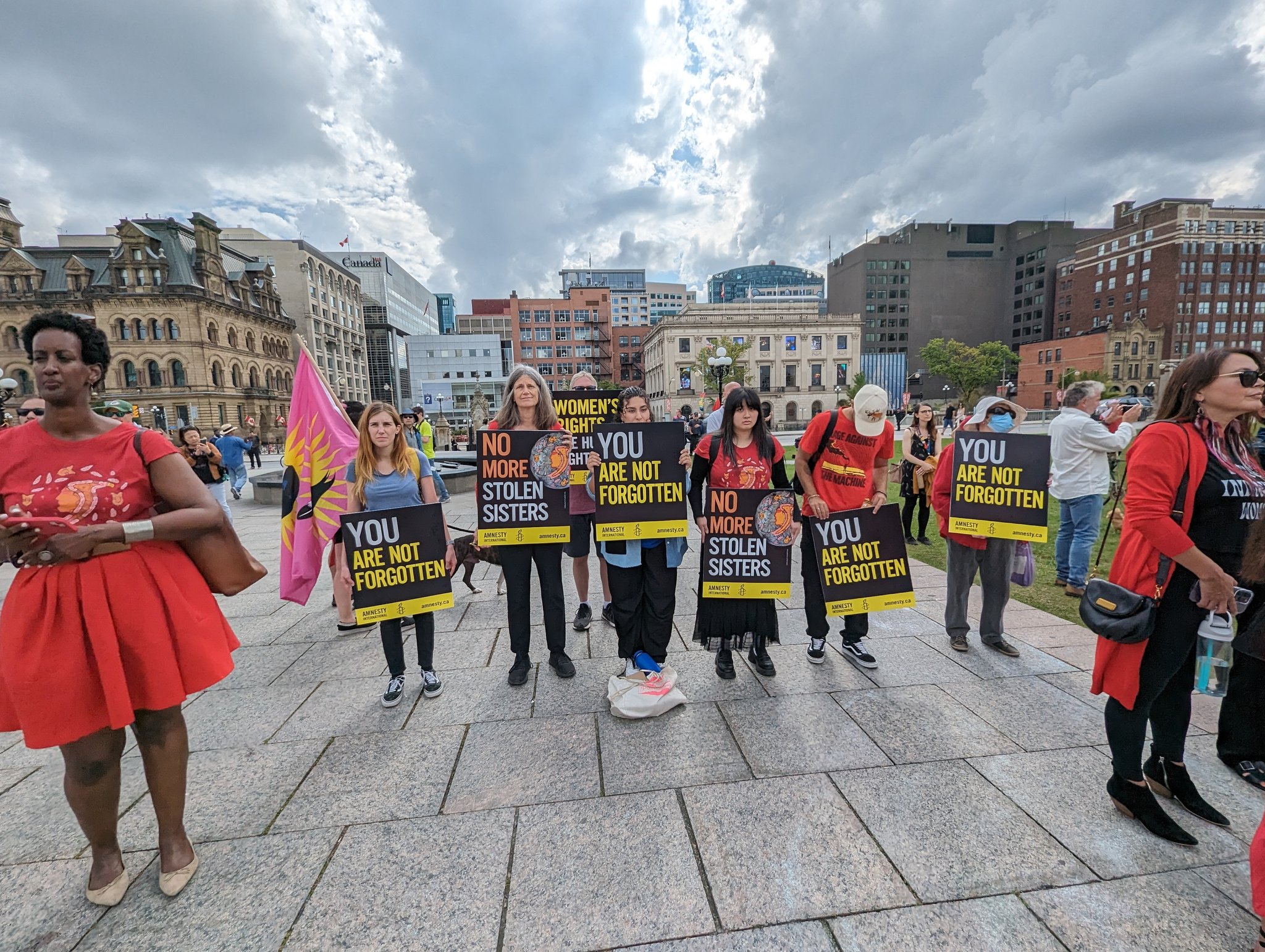
WHAT CAN I DO ON RED DRESS DAY?
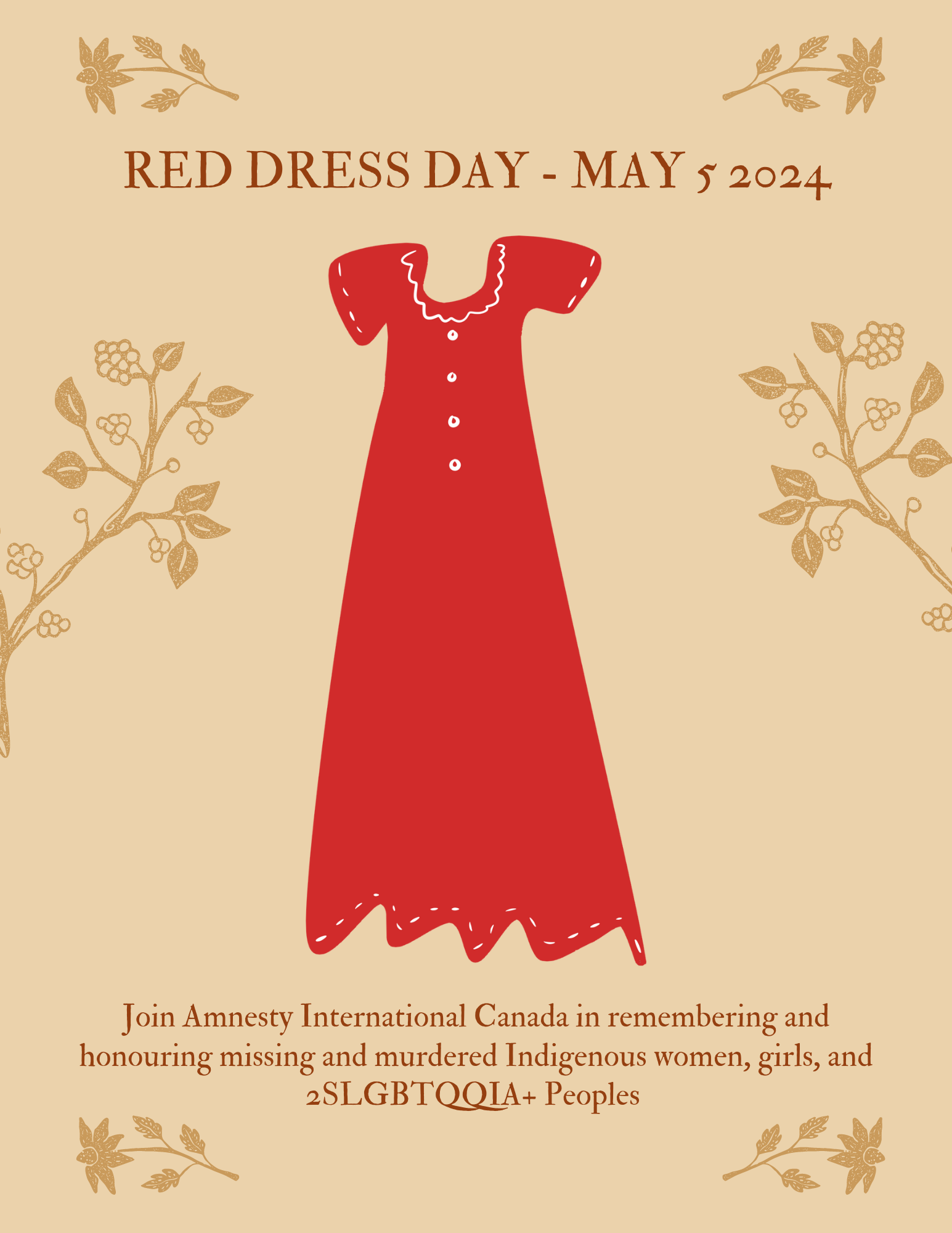
LEARN MORE
Read Tiny House Warrior Kanahus Manuel’s powerful interview with Gender Rights Campaigner Elishma Noel Khokhar to learn more about the threats faced by Indigenous women and gender diverse people on the frontlines of land and water defense.
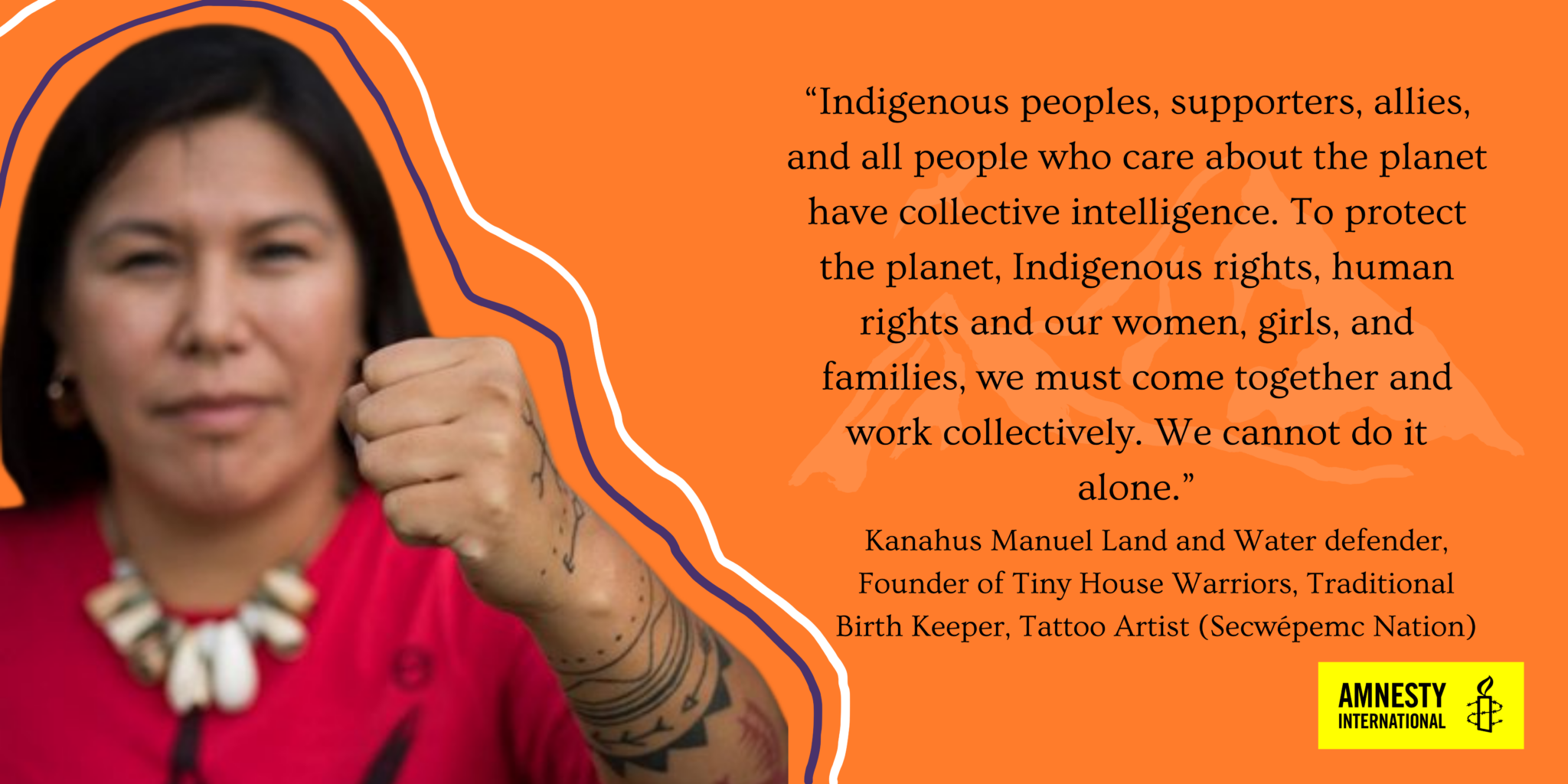
WEAR RED
To mark this day, join us by wearing something red to express our solidarity with Indigenous women, girls and 2SLGBTQQIA+ victims, survivors and families.

ATTEND A SOLIDARITY INITIATIVE NEAR YOU
There are many candlelight vigils, round dances and events held across Canada. Find and attend a solidarity initiative near you!
ONTARIO

ALBERTA

